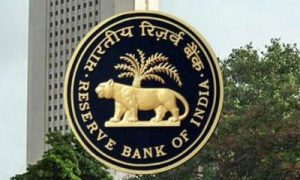UPI Payment Charges: The Unified Payment Interface or UPI has bought revolutionary changes in the payment ecosystem of India, with more and more consumers signing up to pay via the system. While transactions made through UPI are free of cost at present, the Reserve Bank of India has now sought feedback from stakeholders on the possibility of imposing a tiered charge on them.
Read More:-I-T Dept Allows Taxpayers More Time to Claim Credit for Taxes Paid Outside India
The RBI on Wednesday, August 17, released a discussion paper on charges in payment systems to to structure its policies and streamline the framework of charges for different payment services/ activities in India. These include UPI, IMPS (Immediate Payment Service), NEFT (National Electronic Funds Transfer), RTGS (Real-Time Gross Settlement) and payment instruments including debit cards, credit cards, and prepaid payment instruments (PPIs).
“Based on the feedback received, RBI would endeavour to structure its policies and streamline the framework of charges for different payment services / activities in the country. At this stage, it is reiterated that the RBI has neither taken any view nor has any specific opinion on the issues raised in this discussion paper,” said the RBI in the discussion paper.
Read More:-Adani Group Makes $3.9 Billion Open Offer For Two Cement Firms After Approval
On whether the charges should be levied on UPI payments, the RBI chalked out some points. “UPI is both a funds transfer as well as a merchant payment system that facilitates settlement of payment transactions using a combination of different participants.”
“UPI as a funds transfer system is like IMPS. Therefore, it could be argued that the charges in UPI need to be similar to charges in IMPS for fund transfer transactions. A tiered charge could be imposed based on the different amount bands,” said the central bank.
Read More:-Coins worth Rs 11 crore go missing from SBI vaults; CBI searches 25 locations
The RBI sought responses and suggestions from stakeholders by October 3 this year
“RBI has not issued instructions regarding charges for UPI transactions. The Government has mandated a zero-charge framework for UPI transactions with effect from January 1, 2020. This means that charges in UPI are nil for users and merchants alike. Keeping in view that the intent of this discussion paper is to elicit general feedback, a few questions on what approach should be adopted, have been included,” it said.
In the context of zero charges, is subsidising costs a more effective alternative, the central bank asked. “If UPI transactions are charged, should MDR for them be a percentage of transaction value or should a fixed amount irrespective of the transaction value be levied? If charges are introduced, should they be administered (say, by RBI) or be market determined,” the RBI asked in the discussion paper.
Read More:-Attention Rail Passengers: IRCTC To Share Name, Address, Personal Details To Monetise Data
Merchant payments using UPI do not require installation of costly infrastructure by merchants as UPI QR codes are used, it noted. “The cost of merchant infrastructure for UPI is lower as compared to the cost incurred in a card-based acceptance infrastructure,” informed the RBI.
Unified Payments Interface (UPI) is a system that powers multiple bank accounts into a single mobile application (of any participating bank), merging several banking features, seamless fund routing and merchant payments into one hood.





































